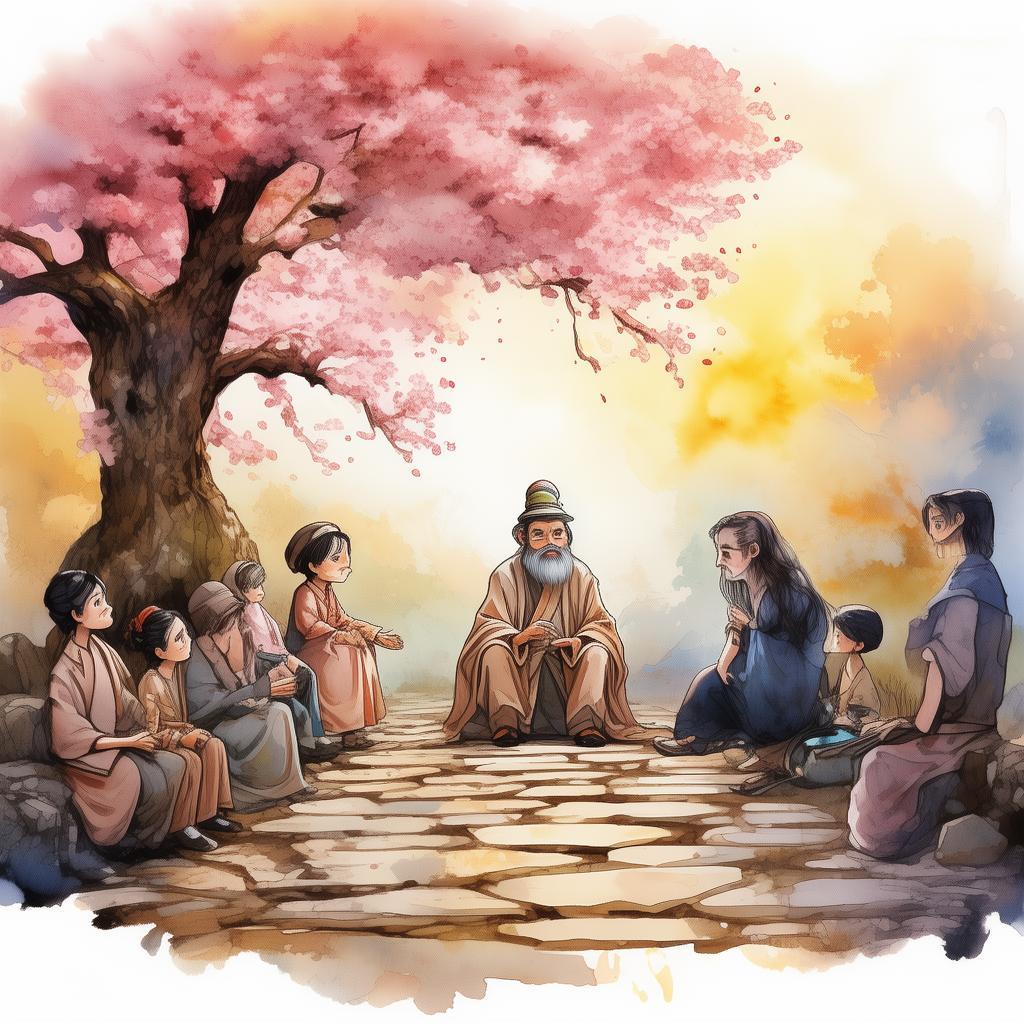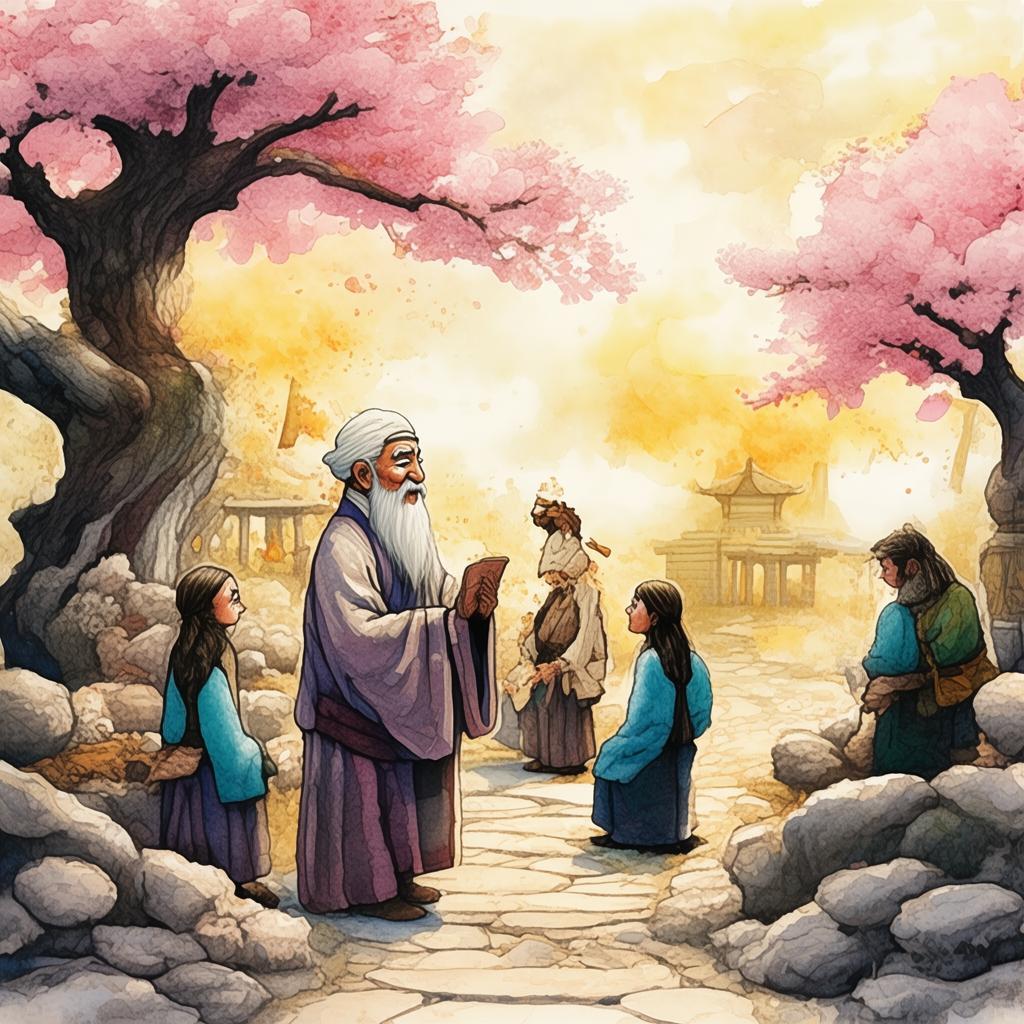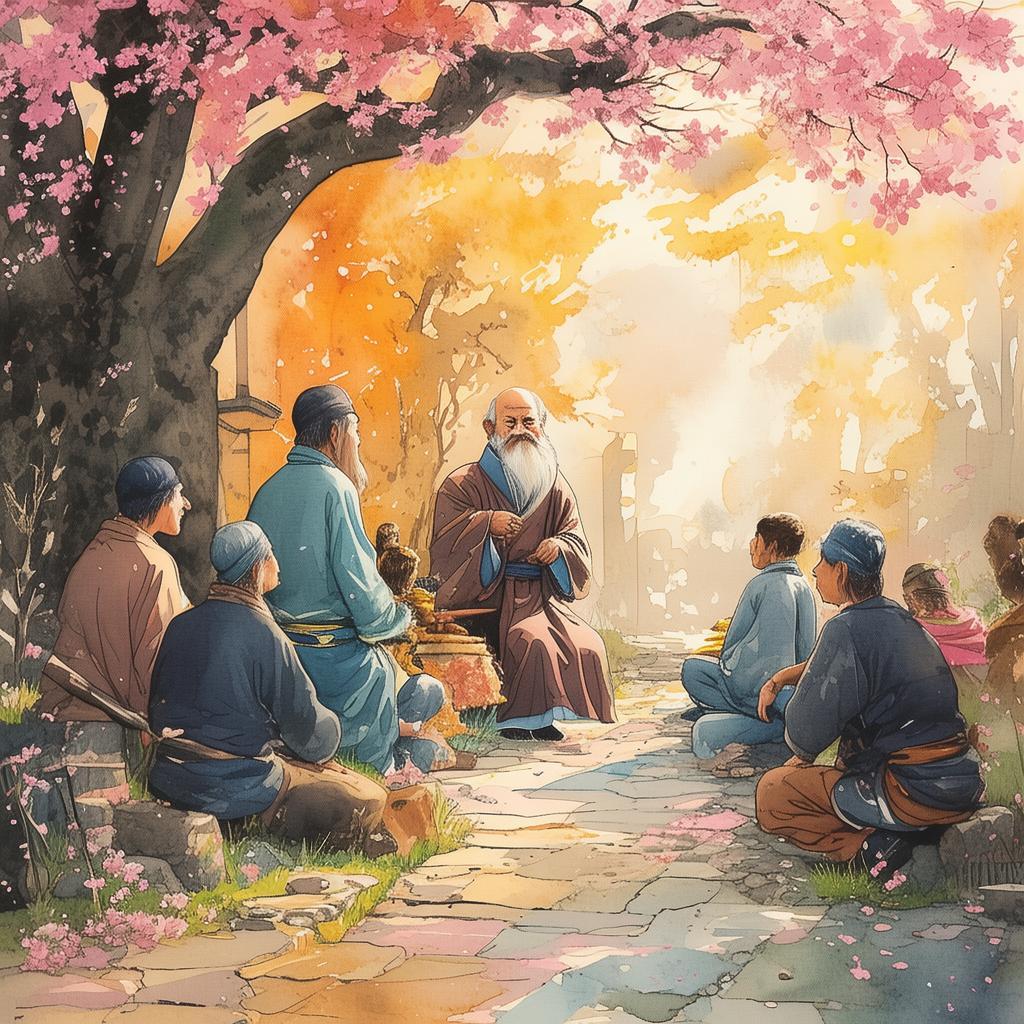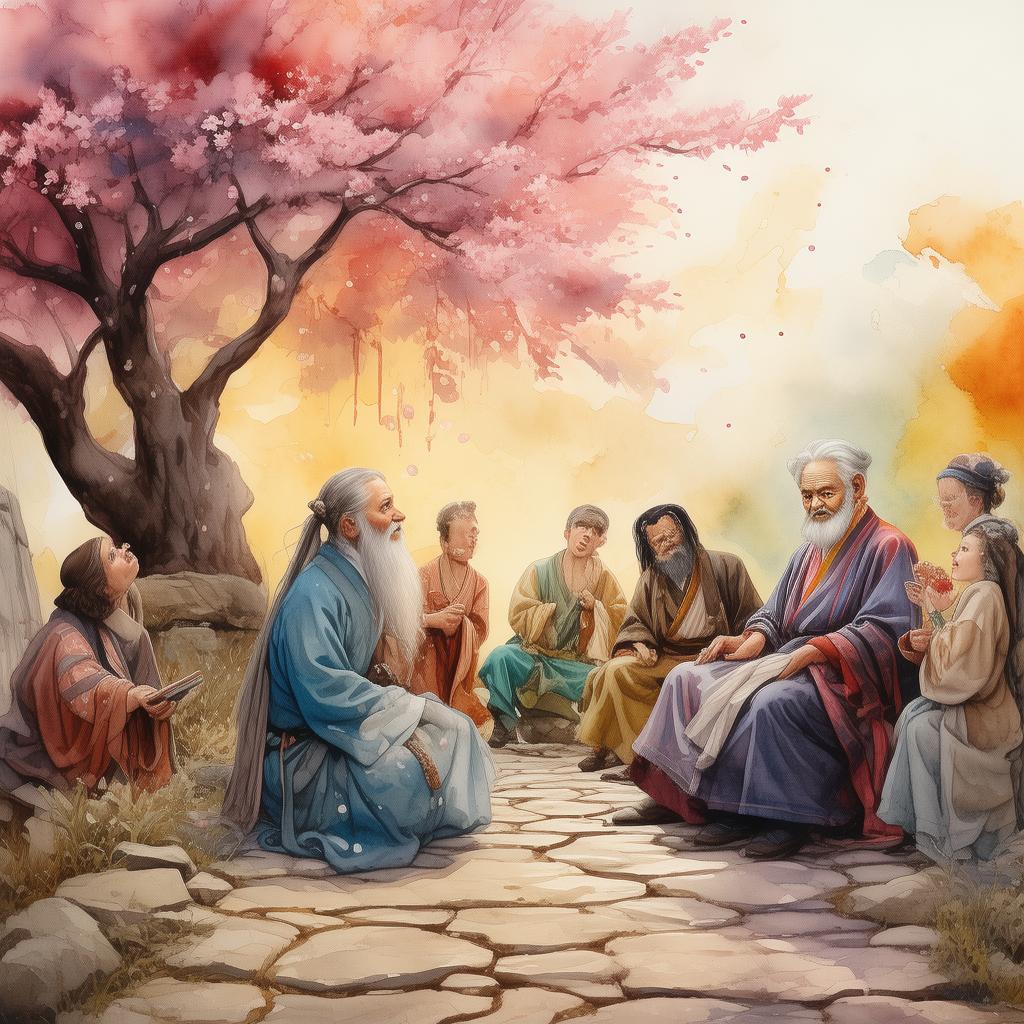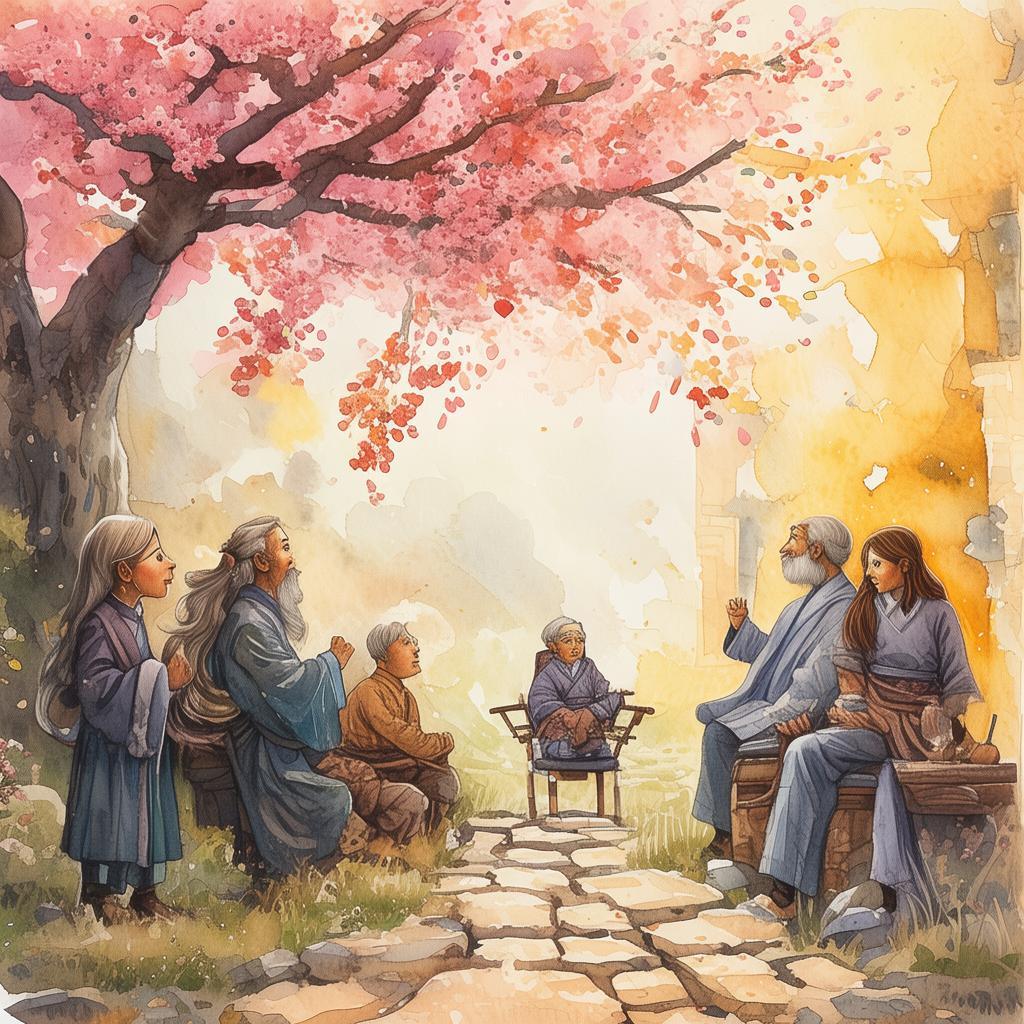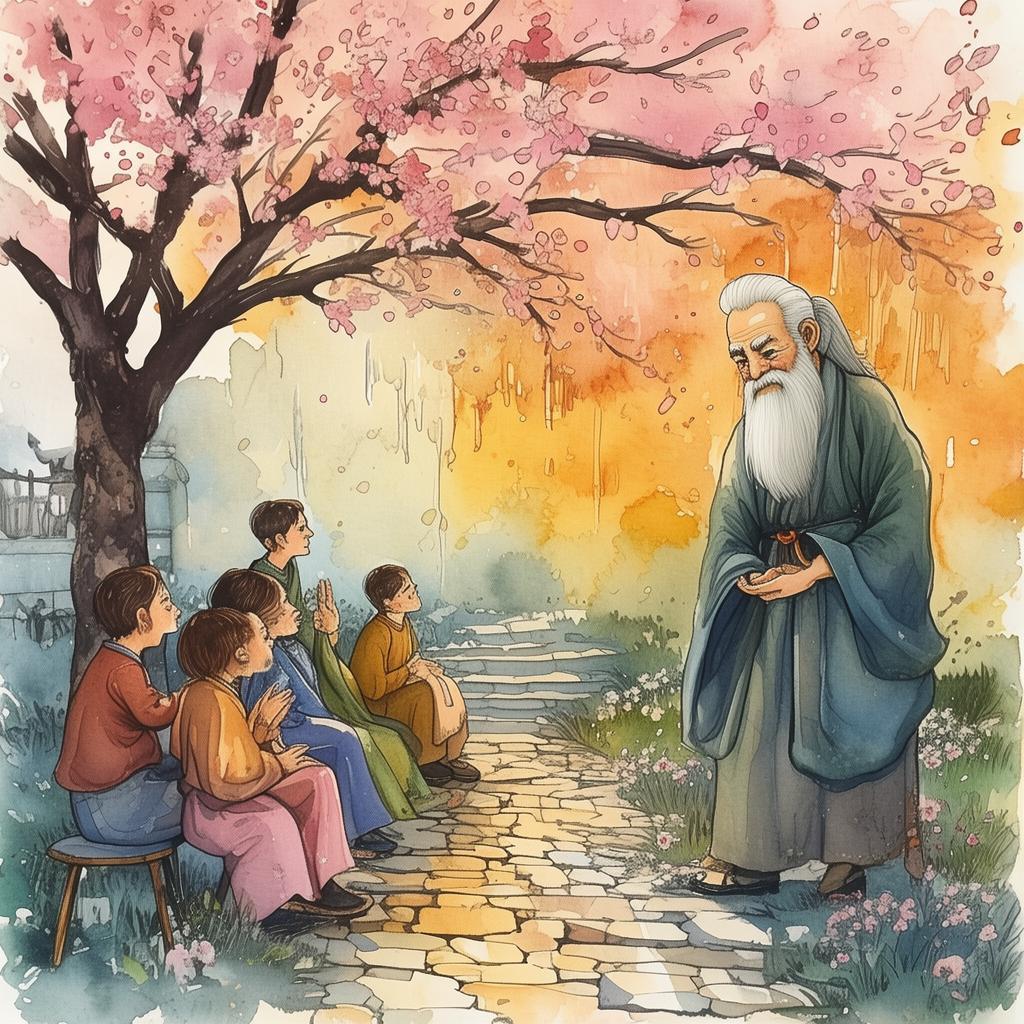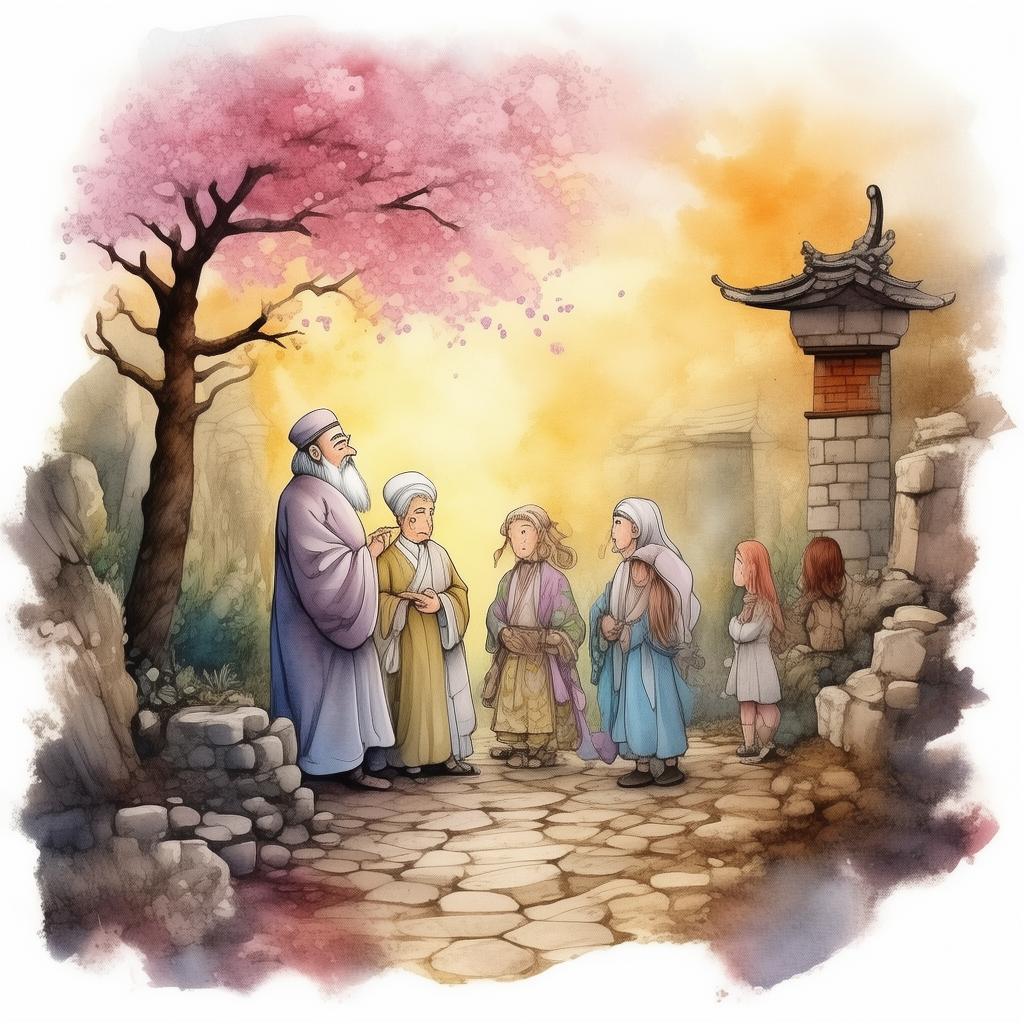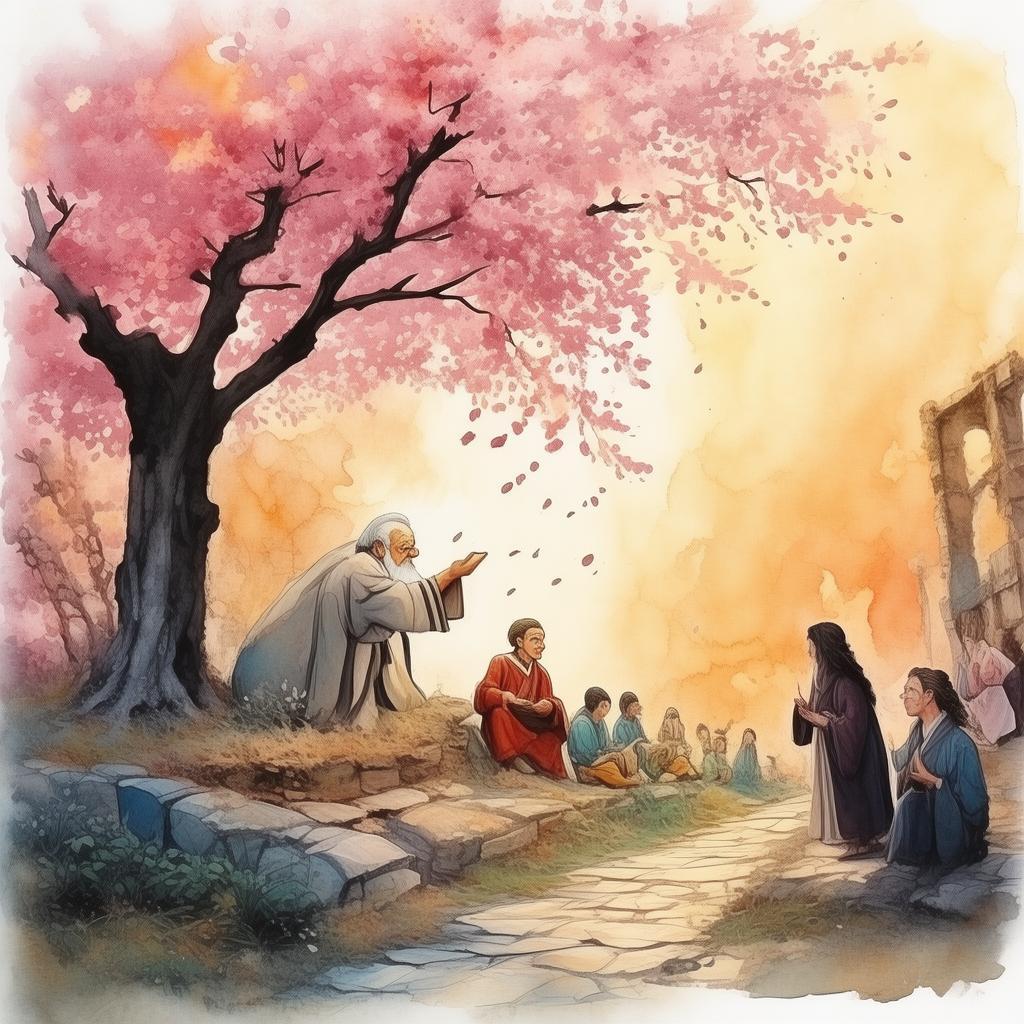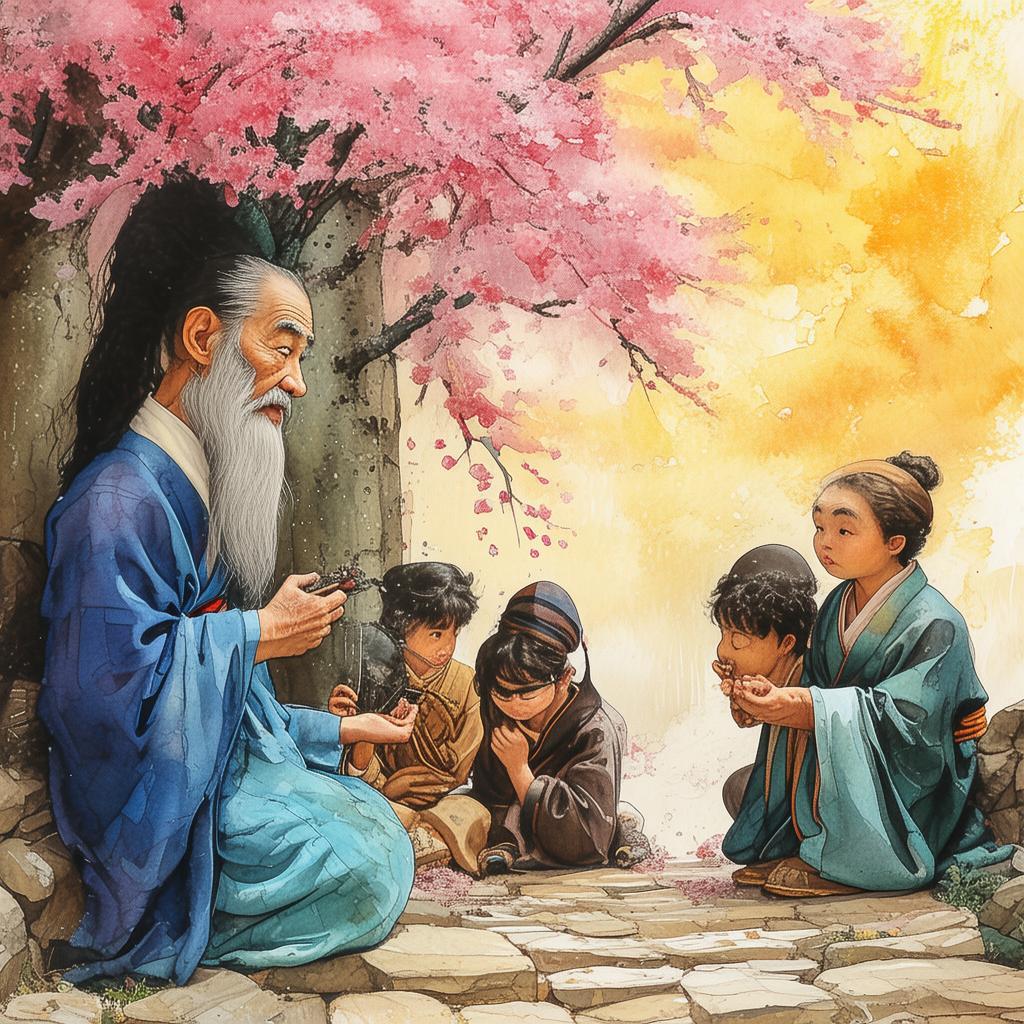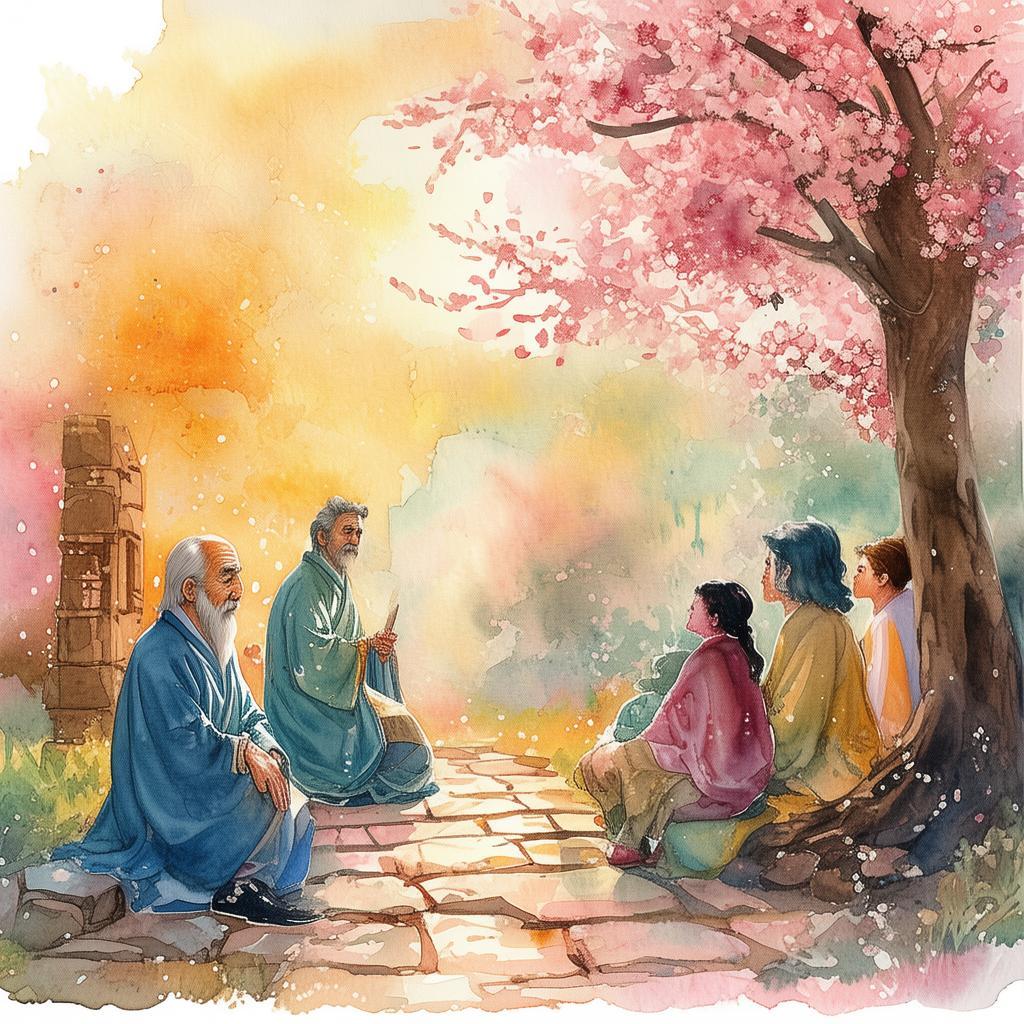The Enigma of the Jade Road: A Merchant's Quest for the Hidden Kingdom
In the heart of ancient China, where the sun dipped below the horizon, casting a golden glow over the bustling city of Chang'an, there lived a merchant named Li. His name was whispered among the traders for his keen eye for the rarest of goods and his unyielding spirit. It was said that Li had a secret, one that he had carried with him for years—a map to a place that no one had seen for centuries, a place shrouded in mystery and whispered about in hushed tones: the Hidden Kingdom.
The story of Li's journey began one crisp autumn morning, as he stood at the eastern gate of Chang'an, his heart pounding with anticipation. The Silk Road, a network of trade routes that connected the East and West, was his path to the unknown. The merchants of old had spoken of the wonders that lay beyond the horizon, of cities where gold was as common as sand and where the air was thick with the scent of spices and incense.
Li's map was an ancient scroll, its edges frayed and its ink faded with time. It was said to be the work of a legendary explorer, who had vanished into the mists of history without a trace. The map was his key to the Hidden Kingdom, a place that was said to be a paradise on Earth, a realm untouched by the outside world.
As Li traveled through the desert, the heat was oppressive, and the sands seemed to stretch on forever. He often found himself stopping to gaze at the map, his fingers tracing the intricate patterns of cities and rivers that were not yet part of his reality. The journey was arduous, and more than once, he questioned his resolve.
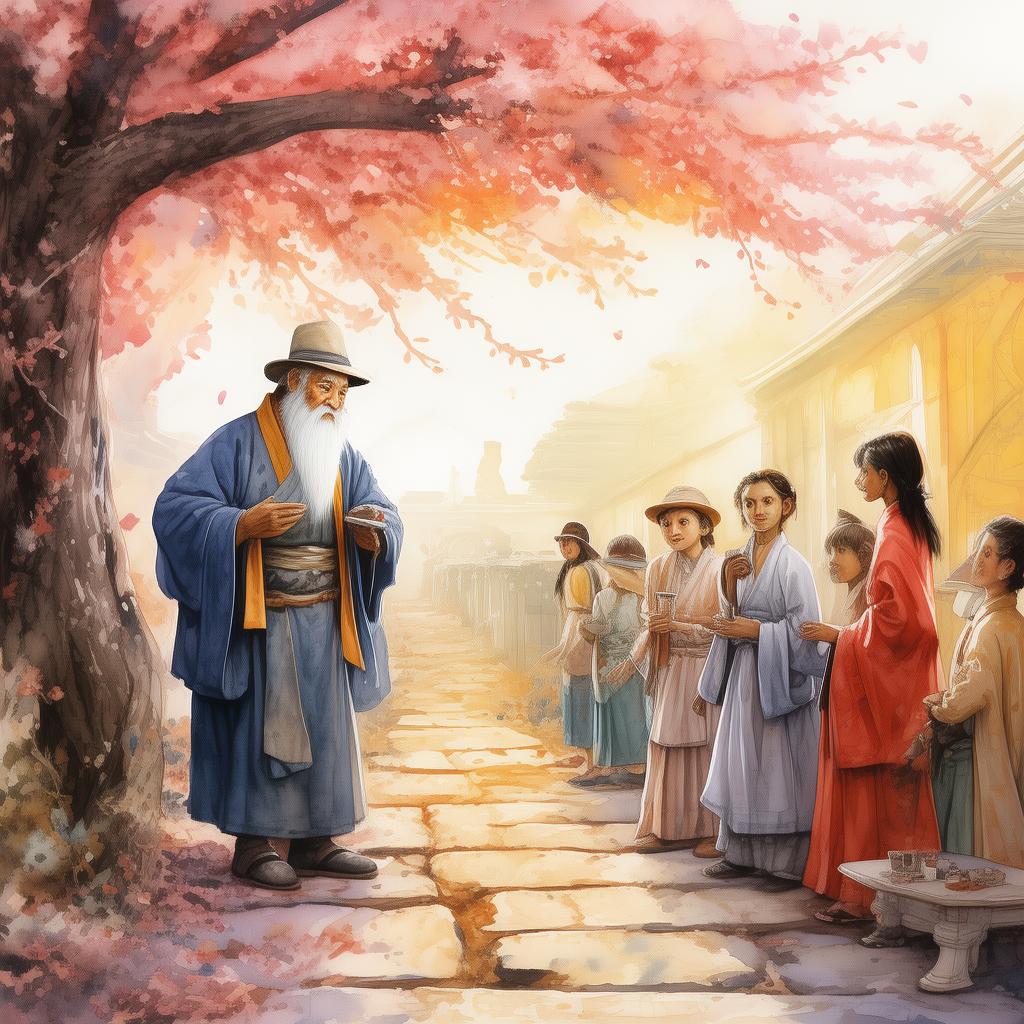
One evening, as the sun dipped below the horizon, casting long shadows across the desert, Li stumbled upon a small oasis. The sight of water was a welcome relief, and he spent the night there, resting and replenishing his supplies. As he lay on the cool sand, gazing at the stars, he felt a sense of peace that had been absent for days.
The next morning, as he continued his journey, Li noticed something strange. The landscape began to change, the sands giving way to lush greenery and towering mountains. He had reached the edge of the desert, and before him lay a vast, uncharted territory.
It was there, in a valley hidden from the eyes of the world, that Li found the Hidden Kingdom. The city was a marvel of architecture, with buildings made of jade and streets lined with exotic flowers. The inhabitants were a people of great beauty and wisdom, and their customs were unlike anything Li had ever seen.
As he explored the city, Li marveled at the wealth and prosperity that surrounded him. He met with the king, a wise and benevolent ruler who welcomed him with open arms. The king spoke of the importance of culture and the way in which the Hidden Kingdom had thrived because of its openness to the world.
One day, as Li sat with the king, he realized that the true wealth of the Hidden Kingdom was not in its gold or jewels, but in its culture. The people of the Hidden Kingdom had learned from the merchants who passed through their land, and in turn, they had shared their knowledge and wisdom with the world.
Li's realization came as a profound moment of clarity. He understood that the true purpose of his journey was not to find a hidden kingdom, but to discover the value of cultural exchange. He saw that the world was connected by a web of shared experiences, and that each person had something to offer.
As Li prepared to leave the Hidden Kingdom, the king presented him with a gift—a scroll that contained the wisdom of his people. Li knew that he would carry this wisdom with him, and that it would guide him in his future endeavors.
As he made his way back to Chang'an, Li's heart was filled with a sense of purpose. He realized that the journey had not been about finding a hidden kingdom, but about finding himself. He had discovered the true value of life and culture, and he was determined to share this knowledge with the world.
The story of Li's journey spread far and wide, inspiring merchants and explorers to seek out new lands and cultures. And so, the Silk Road became more than a trade route; it became a bridge connecting East and West, a symbol of the shared human experience.
In the end, Li's journey was not just about the discovery of a hidden kingdom, but about the discovery of himself and the profound impact that cultural exchange can have on the world.
✨ Original Statement ✨
All articles published on this website (including but not limited to text, images, videos, and other content) are original or authorized for reposting and are protected by relevant laws. Without the explicit written permission of this website, no individual or organization may copy, modify, repost, or use the content for commercial purposes.
If you need to quote or cooperate, please contact this site for authorization. We reserve the right to pursue legal responsibility for any unauthorized use.
Hereby declared.
